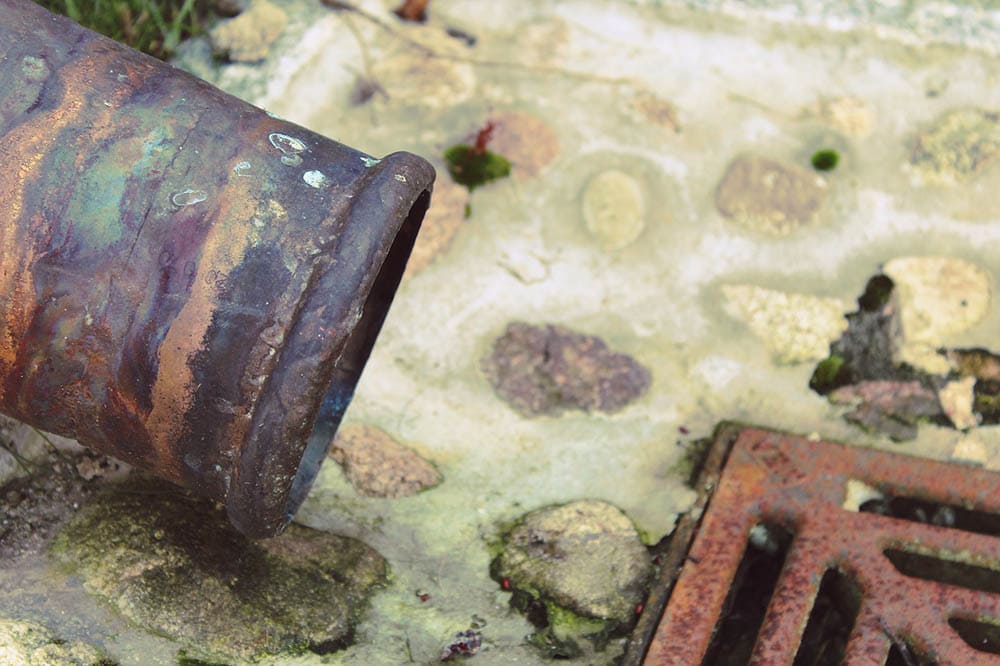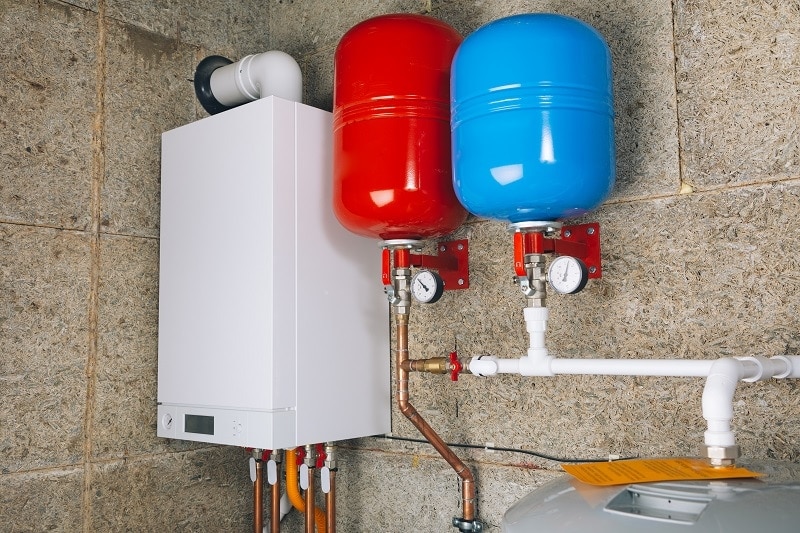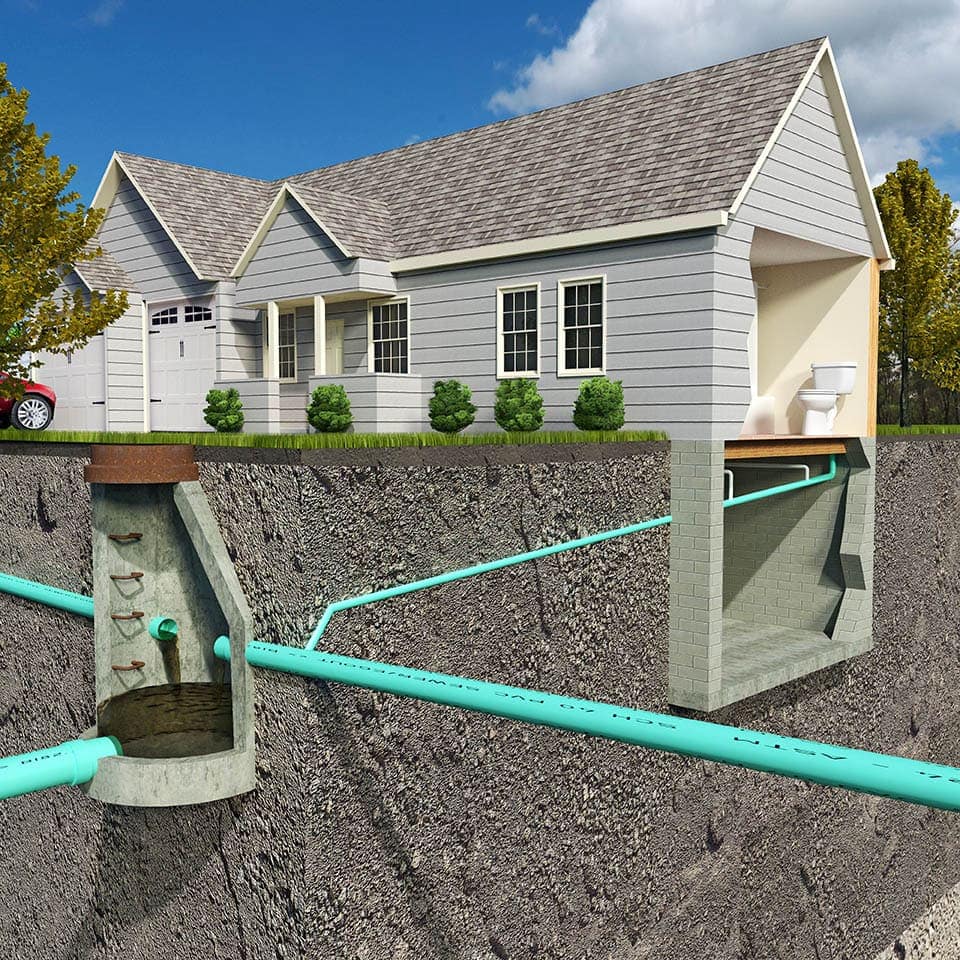Why Does My House Smell Like Gas But With No Leak: 6 Possible Reasons
-
- Last updated:

Smelling gas in your home can be a terrifying experience, especially if you don’t know where it’s coming from and you don’t seem to have a gas leak. If this sounds like the situation in your home, keep reading as we provide you with several reasons that your house might smell like gas and what you can do about it.

The 6 Possible Reasons Your House Smells Like Gas But With No Leak
1. Sulfur
When you smell natural gas or propane, you will usually notice a strong odor that resembles rotten eggs or sulfur. This scent is mercaptan, an added ingredient to these odorless gases to alert us to a dangerous build-up. Sulfur smells almost identical to mercaptan, and it is quite common for people to mistake this natural element for a gas leak. While it’s not common, a small amount of recently exposed sulfur may be causing the smell.
- Unfortunately, there is not much that you can do for a naturally occurring sulfur deposit. If it’s small, you might be able to remove or cover it.
2. Drainpipes
If you look at the drainpipe under your sink, you will notice a curve that holds water, even when you are not using it. This curve is vital for properly draining the sink, but it’s also important because it creates a barrier or seal between your home and the sewer system. If you don’t use the sink for a long time, this water can evaporate, causing sewer vapors to rise into the home, and a strong sulfur smell is one of the first things people notice when this occurs.
Many older homes in the United States have sinks and other plumbing in the basement that the owners no longer use. This plumbing is near the gas lines, and if the sewer smell comes up through the plumbing, it can confuse the owners into believing there is a gas smell.
- If this sounds like the source of the problem in your home, you will need to run the sink or pour water down the drain to create a new seal and prevent the smell from rising. Repeat as needed.

3. Well Water
If you live in a rural area and get your water from a well instead of a municipal facility, the sulfur you smell could be coming from the well. As ground vegetation, including roots, decays, it creates a compound called hydrogen sulfide, which many people mistake as a gas smell. The smell can be faint or strong and can occur at any time.
- If you suspect that your well is the problem, we recommend that you contact your local county extension office, which is a branch of the USDA, to ask for a testing kit. You will need to pay for the test and the lab, which usually costs about $45. The results of this test will tell you how to proceed. You may need to add a chlorine shock to help remove the organic material the same way you would for a swimming pool. Additional filtration under the sink may also be needed.
4. Water Heater
Another cause of a sulfur-type smell that people mistake for gas is the water heater. A dead giveaway to this being the problem is that you will notice the sulfur smell more when you are running the hot water or taking a shower. The cause is a malfunctioning anode in the core of the heater. Unfortunately, this smell will only get worse until you get it repaired.
- You will need to call a licensed repair technician to repair the anode at an average cost of $200 to $400. The good news is that you won’t need to repair the entire heater.

5. Drywall
Between 2001 and 2009, a brand of drywall sold in America came from China and had the strange side effect of off-gassing, which produces a smell that resembles sulfur and causes many people to believe that they are suffering from a gas leak. Most homes that use this drywall in the United States are in the South, where people have installed it after frequent hurricanes.
- Unfortunately, the only way to eliminate the sulfur from this drywall is to remove the whole drywall and install a different brand in its place.
6. Sewer System
The sewer system is a likely source of a sulfur smell, and a hole or leak in a pipe near your home can easily make you think there might be a gas leak. When a city pipe breaks, the gas smell will usually be more noticeable outside the home.
- If you think that there is a problem with your sewer system, the best thing that you can do is call the local authorities to send the proper people out to fix it.

What Do I Do If I Smell Gas?
If you think that you smell gas in your home, the first thing that we recommend that you do is to contact your local gas company to have them come out and check the lines. If they detect a leak, they will shut off the gas, and you will need to hire a qualified technician to fix the problem before they can turn it back on.
Will My Carbon Monoxide Detector Detect Gas?
Unfortunately, the type of gas that a carbon monoxide detector detects is chemically different from natural gas, so it will not be able to detect a leak. In fact, there are no tests available for detecting natural gas, which is why suppliers add mercaptan to it, which gives it that (almost) unmistakable odor.

Conclusion
If you are smelling gas in your home, but the gas company states that you don’t have a leak, you will need to look at other possible causes. The most common problem tends to be drains that get dry and allow sewer vapors to enter the house. It frequently occurs in older homes because there can be sinks and other drains that are no longer used.
See also: How to Find Gas Lines in Your Yard Safely (6 Expert Tips)
Featured Image Credit: Krakenimages.com, Shutterstock
Contents

